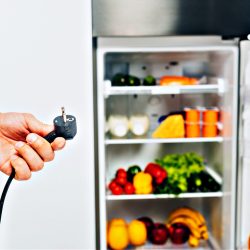You’re searching the internet, looking for how many amps a refrigerator uses. Knowing how much energy it can use is a step closer to a bigger question. Whether it’s to see if it can run on a generator or you have concerns over energy consumption, we’ve gathered some of the best answers we can find. Finding how many amps a refrigerator uses requires a little bit of math and a little more internet searching, so let's get started!
In general, refrigerators use between 3 to 6 amps. First, you can look up the exact model of your refrigerator and look for the manual. Energy-rated refrigerators will provide power measurements for you in the manual. If amps are not listed, you will need to find the number of volts and watts it uses. The next step is to plug it into a simple formula; divide the watts by volts, and you'll have the answer for your fridge.
Now, while that explanation may look simple, it can be a lot to take in. You might be looking into the amperes of a refrigerator because you’re trying to address another concern. Keep reading ahead to find answers to questions you may have on this topic.
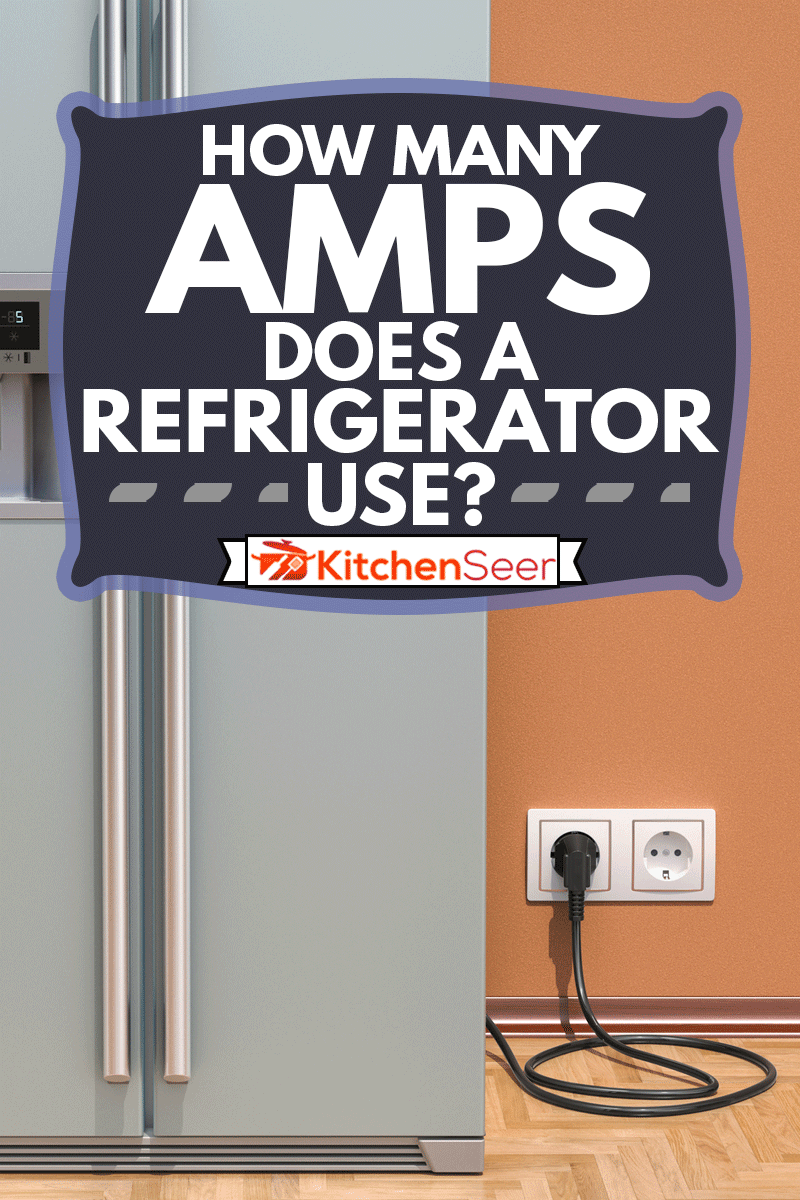
Understanding the Refrigerator And Its Power Usage
![Woman shopping online with credit card buying refrigerator on tablet sitting on sofa at home, Where To Buy A Refrigerator? [Top 25 Online Stores]](https://kitchenseer.com/wp-content/uploads/2020/06/Woman-shopping-online-with-credit-card-buying-refridgerator-on-tablet-sitting-on-sofa-at-home.jpg)
Amperes, wattage, and voltage play a big part in understanding and taking control of electricity usage. Whether it’s an issue concerning where to place an appliance at home or in a kitchen, finding the appropriate ratings is crucial.
Circuit breakers have a limit to the amount of amperage they can take. If you are not careful, the breaker will shut down to prevent damage from taking place. However, if it fails to shut down, you will end up with damage to your wiring and appliances.
That is why it is crucial to check how many amperes your home or kitchen can take. Most typical household circuits carry 15 to 20 amps. If your home or apartment is modern, the amperage of the circuits is likely to be higher. To consider these ratings is crucial because they will decide how many appliances your home kitchen circuit can handle.
When it comes to refrigerators, this is a hefty topic to speak on. They work in a way that requires a lot of energy, specifically during startup. Before we get to the amount of power it requires on startup, you should know why it draws so much.
Refrigerator Amperage
In general, refrigerators contain an electric motor that requires a lot of electricity to start. The amount of power that it needs lowers down significantly as it remains running. As a general rule, the bigger the fridge, the more amps it will need. Refrigerators also go through a defrost cycle with the use of fans that run at various intervals. These actions are the main draw of power.
Now, coming back to power usage, refrigerators require a starting wattage ranging from 800 to 1200 watts. Divide that by 120 volts, which is the amount of power that one outlet can produce, and you will get the amps the refrigerator needs.
So, to bring it all together, refrigerators require 7 to 10 amps initially. The number of amps a refrigerator requires may lead to another concern you might have. Do refrigerators require a dedicated circuit? Although the amps it requires can range from 3 to 10, which home circuits can provide without difficulty, manufacturers recommend refrigerators have a dedicated circuit.
Circuit Breakers - GFCI & AFCI
It may seem silly, but safety is the primary concern. Preparing for the worst-case scenario is ideal. You don’t want to short a circuit or damage other appliances. In addition to a dedicated circuit, refrigerators require protection. Two types of protection are necessary when installing electrical circuits. They are GFCI and AFCI; two circuit breakers that serve different functions.
GFCI protection detects ground faults and acts fast to shut off electrical power. AFCI protection detects electrical arcs and trips to prevent potential danger from happening. Dangerous arcs can grow hot enough to start a fire.
GFCI protection is not required for refrigerators unless it’s within 6-feet of any sink. Some users have complaints about refrigerators causing GFCI outlets to trip. Why does this occur? Refrigerators are an inductive load. As mentioned before, refrigerators use an electric motor to start up. The load that powers motors fall into the category of an inductive load.
When an inductive load is switched off, electromagnetic interference can occur. This is the cause for trips to a GFCI outlet. For this reason, AFCI protection is necessary for refrigerators.
Electrical circuit requirements for home appliances is another topic that requires explanation. If you are wondering how it all works, you should consult with a professional. This way, you can ensure your refrigerator will work at its best. You will also ensure a minimal chance of accidents occurring.
Is It Okay To Run A Fridge Off An Extension Cord?
The answer to this question is a bit tricky. Yes, you can run a fridge off an extension cord. How safe that is, depends on your situation. Before you consider using an extension cord, you need to ask yourself a few questions:
- Can the extension cord handle the power that a refrigerator needs?
- How long will you use the extension cord?
You need to know the amps the refrigerator needs and the wire gauge rating of the extension cord. This information is crucial to use an extension cord with a refrigerator without accidents.
In general, it’s advisable to avoid using high-power appliances with extension cords. If it’s necessary, however, make sure it’s temporary. Otherwise, refrigerators should run through a direct connection to an outlet. As always, use caution. Just because you can, doesn’t mean you should.
Can You Plug A Fridge Into A Surge Protector?
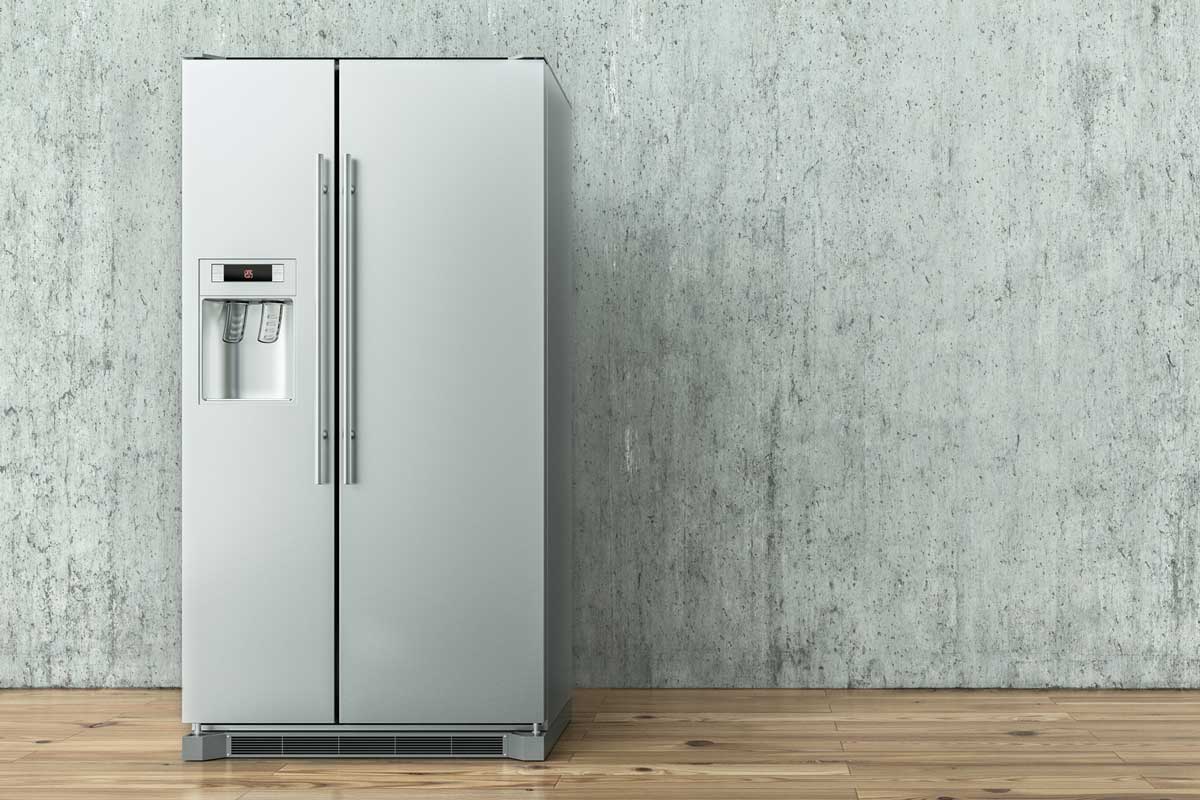
As mentioned before, refrigerators go through several processes. One of those processes determines if you can plug a fridge into a surge protector. In this case, the compressor is the determinant. The compressor is a part of the refrigerator in charge of circulating the refrigerant throughout the system.
This component is sensitive to heat and current overloads. If it starts to overheat or senses a current overload, it will shut off using a surge. It will restart the system. With a surge protector, however, it will not reboot. Manufacturers, such as General Electric, do not recommend connecting a fridge into a surge protector.
How Do You Know How Big Your Fridge Is?
Finding the dimensions of your fridge can be simple. You can try looking for your specific model online. Online sellers will list the dimensions of the refrigerator.
There is usually a sticker containing the model and the serial number of the fridge. The placement of the sticker is dependent on the manufacturer. The sticker can be found in spots like the inside of the door, inside the wall of the fridge, or the door frame.
However, if you don’t know the exact model, you can always measure the fridge yourself. You can look at help from retailers such as Home Depot, and for an in-depth guide, check out "How Do You Measure Refrigerator Liters?"
Can You Run Two Refrigerators On One Outlet?
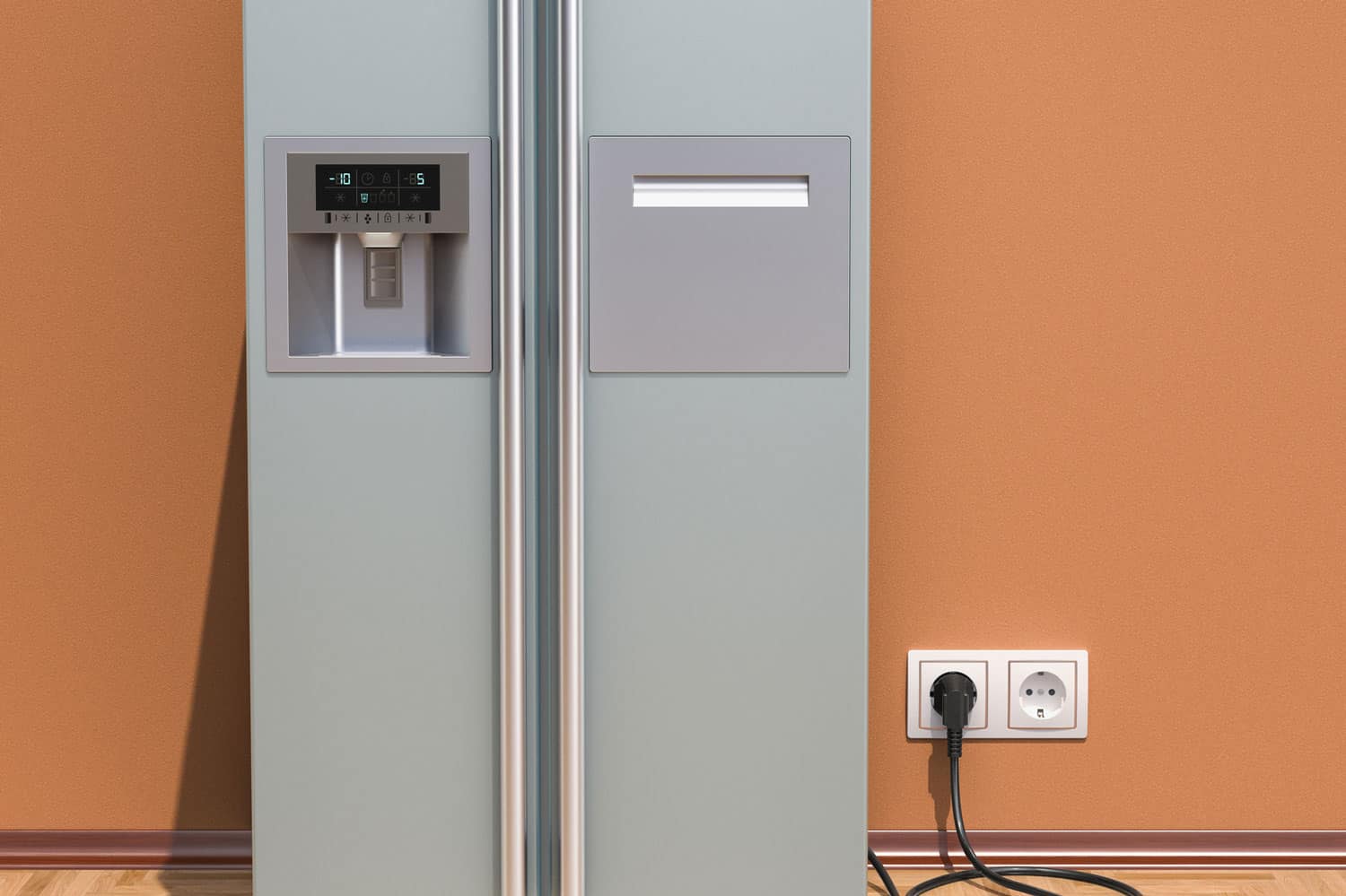
In theory, yes, you can run two refrigerators on one outlet. The maximum amount of amps they need ranges from 3 to 12, with startup taken into consideration. The startup, however, is why you should not run two refrigerators on one outlet.
The spontaneous startup of a refrigerator can sometimes require up to 15 amps. If two refrigerators are running on one outlet, this will cause the circuit to trip. The usual 20 amp circuit will not be enough to handle two fridges.
What Appliances Need Their Own Circuit?
Appliances that draw a large amount of electricity require their own circuit. For ratings, check if the appliance needs a wattage of 1,000 or more. If they do, they are likely to need a dedicated circuit.
Appliances that fall into this category are:
- Refrigerators
- Washers
- Dryers
- Dishwashers
- Air conditioners
- Microwave ovens
Some of these appliances rely on the use of motors which need a lot of energy.
Summary
By being aware of the energy a refrigerator requires, you can prevent accidents from happening. Refrigerators require a lot of energy. When considering startups, that requirement jumps higher. They need a lot of energy because of the components they use to run. Whatever your situation may be, at least you can be prepared with the knowledge given.
If you are searching for a new refrigerator, check out "Best Refrigerator Brands On The Market."

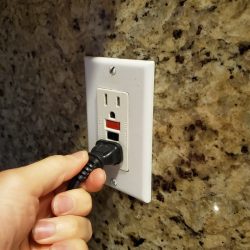
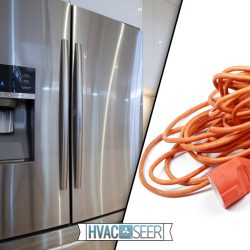
![Dishwasher, clean dishes and kitchen detail, How Many Amps Does A Dishwasher Use? [By Brand]](https://kitchenseer.com/wp-content/uploads/2020/12/Dishwasher-clean-dishes-and-kitchen-detail-250x250.jpg)

